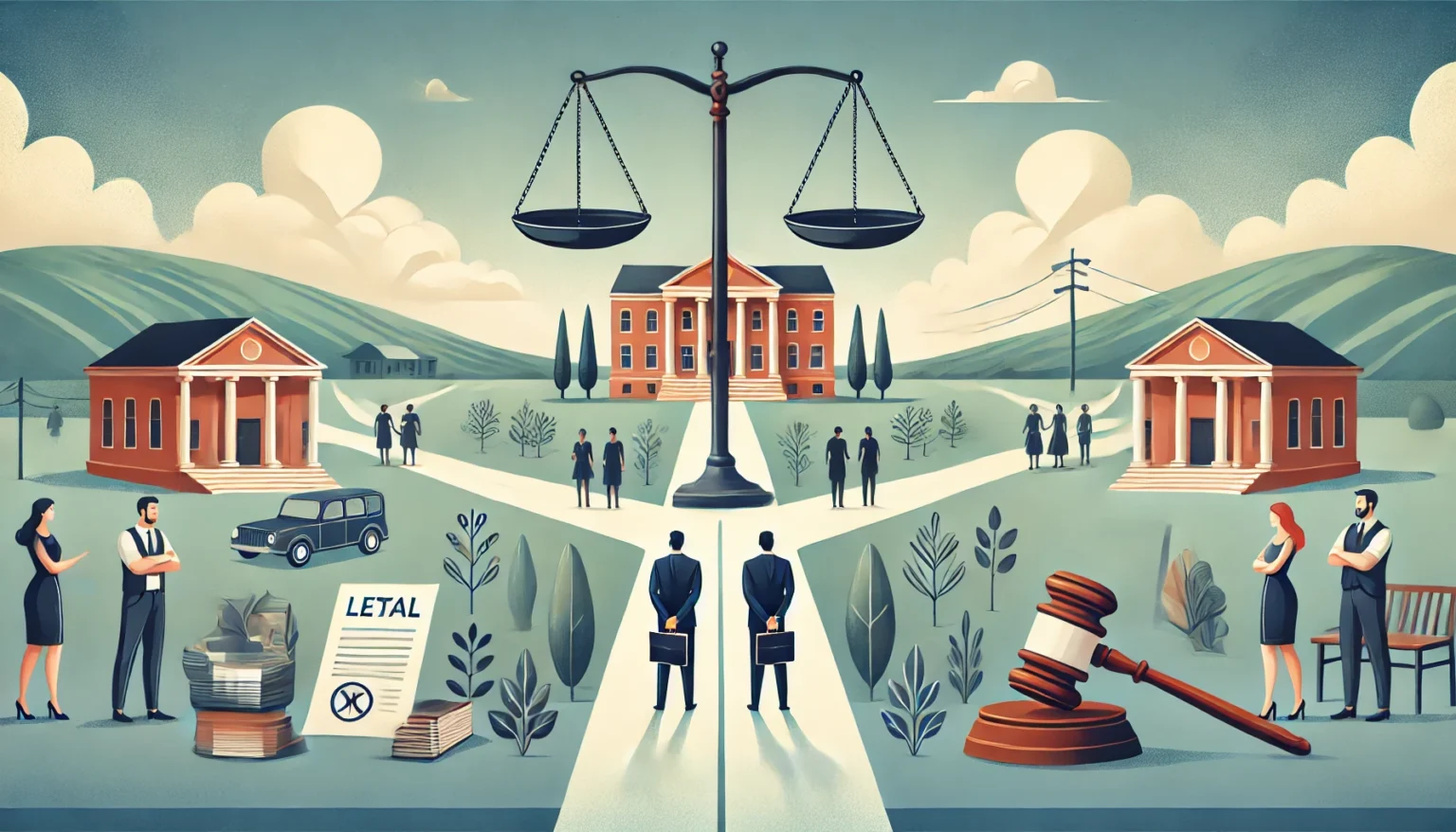Divorce is a challenging and often emotional process, but understanding your Legal Rights During Divorce can help you navigate the situation with greater confidence and clarity. Whether you’re the one filing for divorce or the responding party, knowing your Divorce is crucial for protecting your interests, especially when it comes to property division, child custody, and alimony.
Right to Fair Division of Assets
One of the most significant aspects of divorce is the division of assets, which includes both property and debts. In many jurisdictions, marital property is divided under the principle of equitable distribution, meaning that assets should be divided fairly but not necessarily equally. Factors like the length of the marriage, each spouse’s financial contributions, and the needs of any children are taken into account.
Key Points to Understand:
- Marital vs. Separate Property: Marital property is property acquired during the marriage, while separate property is property owned before the marriage or received as a gift or inheritance.
- Equitable Distribution: This doesn’t mean a 50/50 split, but instead a fair distribution based on specific factors. For example, one spouse may receive a larger share of the marital property if they are the primary caregiver of children.
- Debts: Debts incurred during the marriage may also be divided. Just like assets, the court will evaluate the fairness of dividing these debts.
Right to Child Custody and Support
If children are involved, both parents have rights related to custody and support. The court’s primary goal is to serve the best interests of the child, which may involve awarding joint or sole custody, depending on the circumstances.
Custody Rights:
- Physical Custody: Determines where the child will live. It could be with one parent (sole custody) or both parents (joint custody).
- Legal Custody: Involves the right to make decisions about the child’s upbringing, such as education, health care, and religious training. It may be joint or sole.
- Visitation Rights: If one parent has sole physical custody, the other parent typically has visitation rights, which will be outlined by the court.
Child Support:
- Both parents are required to contribute to the financial support of their children, and the amount is typically determined by a child support guideline based on the parents’ income, the child’s needs, and custody arrangements.
- Parents must pay child support until the child reaches the age of majority or becomes emancipated. Some jurisdictions also require support for children with special needs or those pursuing higher education.
Right to Spousal Support (Alimony)
Spousal support, or alimony, is a financial arrangement where one spouse provides monetary support to the other, typically to maintain the recipient spouse’s standard of living after the divorce. Alimony is not guaranteed and depends on factors such as the length of the marriage, the recipient spouse’s financial needs, and the paying spouse’s ability to pay.
Key Points to Consider:
- Types of Alimony: There are different types of alimony, including temporary, rehabilitative, and permanent. Temporary alimony is paid while the divorce is in process, rehabilitative alimony helps a spouse gain the skills needed to support themselves, and permanent alimony may be awarded in longer marriages or in cases where the recipient cannot support themselves.
- Modification or Termination: In some cases, alimony can be modified if there is a significant change in circumstances, such as the paying spouse’s income decreasing or the receiving spouse remarrying.
Right to Legal Representation
Both spouses have the right to legal representation during the divorce process. Whether you choose to hire a lawyer or represent yourself, it’s essential to have guidance through the complex legal system. An attorney can help you understand your rights, negotiate settlements, and ensure that your interests are protected during court proceedings.
Important Considerations:
- Right to Fair Legal Representation: If you cannot afford a lawyer, you may be eligible for legal aid or assistance through pro bono services.
- Consulting with a Divorce Attorney: Even if you are not sure about hiring a lawyer, an initial consultation with an attorney can help clarify your options and rights.
Right to a Fair Hearing in Court
If a divorce becomes contested and goes to trial, both spouses have the right to a fair hearing. This includes the right to present evidence, cross-examine witnesses, and make legal arguments before a judge. A fair hearing ensures that both parties have an opportunity to be heard and that the judge can make a decision based on all available information.
Key Points to Remember:
- Due Process: This refers to your right to a fair and impartial trial. A judge should not favor one party over the other.
- Legal Procedures: Both parties must follow the court’s rules for presenting evidence and arguments.
Right to Privacy
During divorce proceedings, there are certain aspects of your personal life that may become public, such as financial records or information regarding child custody. However, you also have the right to privacy. For example, the details of personal communications between you and your spouse, or private matters like medical conditions, may not necessarily be disclosed unless they are relevant to the case.
Important Considerations:
- Public Record: Some divorce records may become part of the public record, but sensitive personal details may be protected by the court.
- Confidential Information: In some cases, such as in mediation or settlement negotiations, the information shared may be confidential and not used in court.
Right to Appeal
If you feel that the court’s decision is unfair or that errors were made during the divorce proceedings, you have the right to appeal the decision. An appeal does not mean the case will be retried, but rather, a higher court will review the original court’s decision for legal errors.
Key Points About the Appeal Process:
- Time Limits: There are strict deadlines for filing an appeal, so it’s important to act quickly if you believe there are grounds for one.
- Appellate Court: The appellate court will review the case but generally will not involve new evidence. It will focus on whether legal procedures were followed correctly.
Conclusion
Understanding your legal rights during divorce is essential for protecting your interests and ensuring a fair outcome. Whether it’s your right to property, child custody, spousal support, or a fair hearing, being informed about the legal process allows you to navigate the complexities of divorce with greater confidence. Always consult a legal professional to ensure your rights are fully understood and upheld during the proceedings.
Article Recommendations
Understanding the Divorce Process: A Step-by-Step Guide
Worcester Mesothelioma Lawyer Vimeo: A Reliable Tool for Locating Top Lawyers in Massachusetts
Elk Grove Mesothelioma Legal Question: Common Myths and Facts About Asbestos Lawsuits
Wisconsin Mesothelioma Lawyer Vimeo: Connecting with Top Attorneys Through Informative Videos
Wyoming Mesothelioma Lawyer Vimeo: Educating and Empowering Asbestos Victims













